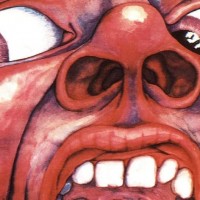B.B. King didn’t have to do this. Didn’t have to experiment with hipster roots producer T Bone Burnett, New Orleans pianist Dr. John and others for the superlative One Kind Favor, released on Aug. 26, 2009. Didn’t have to get off a never-ending love-in tour that seemed to draw continuous sellouts of enraptured fans – all perfectly satisfied to be the how-many-ever-millionth customer to sing along with “The Thrill is Gone.”
He could have done what most guys his age were doing: Put out an overhyped, but essentially soul-free album of duets featuring a head-scratching phalanx of with-it stars like, I don’t know, Kid Rock and Jessica Simpson, then run a rut to the check-cashing place. Instead, B.B. King opened himself up creatively and, in some ways, even musically (since he’s always been more known for a polished, citified sophistication) in the still-stirring winter of his justly legendary career.
One Kind Favor was like a trip to the bottom of a popping 1950s pot of country-cooked dirty rice, familiar yet complex. King opened with a song that, in anybody else’s hands, playing with any other producer, might have been a sad valedictory: Here, however, Blind Lemon Jefferson’s “See That My Grave Is Kept Clean” shuffled in as a quick-step admonition: B.B. King recognized his looming mortality, and he was going to have a knee-slapping hootenanny in the meantime. “I’m not going anytime soon,” he memorably welped, “but when the day comes, don’t forget me.”
That set the tone for a direct and unpretentious set dominated by blues musicians from King’s gritty Mississippi youth, some familiar (Big Bill Broonzy, doomed genius Robert Johnson), some less so (John Willie “Shifty” Henry, Lee Vida Walker). King wasn’t nostalgic, though, so much as celebratory. Reexamining their music gave new life to his own, too.
There was inside his mournful then cool-rocking take on Leroy Carr’s “Blues Before Sunrise” (incorrectly credited here to John Lee Hooker) a reclamation of King’s rightful place not simply as ambassador for this music, but as its greatest living interpreter. Without the window dressing that so often obscured artists of his vintage, King’s shattering vibrato (both as a singer and a guitarist) provided honest answers and lasting resolve for a musical world sometimes gone awfully wrong.
Listeners responded: One Kind Favor debuted at the top of Billboard magazine’s blues music charts, of course — but also entered the magazine’s Top 200 at No. 37, as well. That was B.B. King’s highest mainstream chart position since the celebrated Live In Cook County Jail hit No. 25 in 1971, a final triumph of the highest order.
We couldn’t, back then, answer the question of “How Many More Years,” posed here in the old Howlin’ Wolf tune. But you were reminded of King’s frailty again and again in this uncluttered studio atmosphere, which laid bare vocals that sometimes can’t pull off the winking bark of his biggest old tunes. That was part of the brave magic of One Kind Favor, too: We hear B.B. King as he was, not as some pre-packaged version of a Venerable Old Blues Musician.
Whatever he had lost as a singer, and it was not much, there was still a deep well of emotion in King’s guitar playing. From clever, crystalline licks on the Mississippi Sheiks’ “Sitting on Top of the World” to a captivating take on Lonnie Johnson’s “My Love Is Down,” King made a final, ringing argument for his lasting relevance with each stinging pluck.
No, the now sadly passed B.B. King didn’t have to take this chance. But, thankfully, he did.
- The Bright Spots in George Harrison’s Troubled ‘Dark Horse’ Era - December 29, 2024
- The Pink Floyd Deep Cut That Perfectly Encapsulates ‘The Wall’ - November 29, 2024
- Why Pink Floyd’s ‘The Endless River’ Provided a Perfect Ending - November 11, 2024



Well said! That was my feeling too, when I first heard this album: “It is different! He’s still taking chances, still growing.”